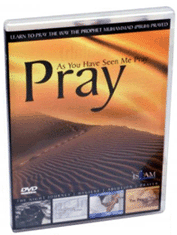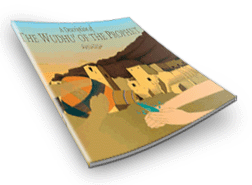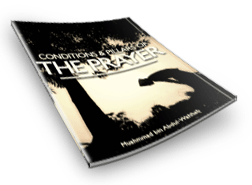For New Muslims
For New Muslims

In the Name of Allâh, the Most Beneficent, the Most Merciful
"So know that Laa ilaaha ill Allah (that there is no deity worthy of worship but Allah), and ask forgiveness for your sin, and also for (the sin of) believing men and believing women. And Allah knows well your moving about, and your place of rest (in your homes)." [Soorah Muhammad (47):19]]
Pray As You Have Seen Me Pray

Pray As You Have Seen Me Pray is a documentary style educational film that teaches you the basics of prayer. It contains the following: The Night Journey (Isra' wal-Mi'raj) The story of the Miraculous Night Journey in which the prayer was revealed to the Prophet Muhammad (pbuh) from Allah (swt). General Hygiene (Taharah) Muhammad (pbuh) said that cleanliness is one half of faith. The Ablution (Wudu) A prerequisite of prayer is washing the parts of the body as ordered by Allah (swt) and taught by the Prophet Muhammad (pbuh). Dry Ablution (Tayammum) If water is not available then one may perform a dry ablution. Bathing (Ghusl) Bathing is required in the manner taught by Muhammad (pbuh) in certain circumstances. The Prayer (As-Salah) All one needs to know about the prayer including: The importance of prayer, leaving the prayer, prerequisites of prayer, a detailed two units (Rak'at) of prayer, a step by step guide to performing three & four units of prayer and general points about Prayer. Medical Benefits of Prayer & Ablution The medical world is continuously finding amazing benefits from performing prayer and ablution - Praise be to Allah (swt) the Creator of all that exists.
Download FLV [279 MB]
A Guide For The New Muslim

This is a gift for all the new Muslims who currently know the right path to Allah. This is a means to strength and preserve their belief. In this book Sheikh Jamaal al-Din Zarabozo shows the fruits of becoming a Muslim, the excellent features of Islam and all aspects of Islam. Sheikh Jamaal illustrates the pillars of faith on which one’s belief is based and the pillars of Islam which contain the best practical deeds (e.g. prayer) and the best deeds of the heart i.e. the monotheism. As Islam is a social religion, Sheikh explains the Muslim’s behavior towards all individuals in the society, old or young, whether they embrace Islam or not. Afterwards he puts up some notice about both of the permissible and prohibited financial dealings. He also mentions the factors which increase the one’s belief and help the Muslim to abide by Allah’s commands. He refers to the obstacles (e.g. lust, misconception and ignorance) in the path of the Muslims prevent him from continuing his way to Allah. He also shows the prerequisites of the sincere repentance which is between the person and his God without a mediator. Finally, he gives a word for the new Muslim.
Purchase Audio Here
Explanation of Important Lessons

By Muhammad bin 'Ali Al-Arfaj. This book is a short work to explain what every Muslim needs to know about the religion of Islam. It covers many lessons under 18 chapters
33 Lessons for Every Muslim

Preface, 'I had the opportunity to read the book titled “The Most Important Lessons For Every Muslim” written by Sheikh Abdulaziz Bin Baz (May Allah have mercy on him), which I think, is a highly beneficial book to all Muslims. It gives basic requirements for the foundation of their Aqeedah (creed) and ‘Ibadah (worship). It struck me that this small but informative book would be of immense benefit for non-Arabic speaking Muslims, spread all over the world, if translated into another foreign language. While translating this book, it dawned on me that the Sheikh has written this book, primarily for Arab speaking Muslims and thus has written most of the information very briefly. But this may not be sufficient for non-Arab Muslims, whose knowledge of Islam is mixed with their local cultures and practices, resulting in deviations from pure Islamic monotheism.
Islamic Studies Book 1

This is the first book of a series of 5 primarily designed for high school (secondary) school students (ages 12-18). It focuses on four areas of Islamic knowledge: Aqeedah, Tafseer, Hadeeth and Fiqh and is presented in simple language. It is also suitable for new-Muslims and adults seeking an easy explanation of the basic areas of Islamic disciplines. All texts are supported by evidence from the Quran and authentic hadeeths.
Program of Studies For New Muslims

Introduction to Program, 'In 1974, the Planning Committee of the Muslim Students' ssociation of the U. S. and Canada sparked the idea of designing a comprehensive curriculum for American Muslims who have recently embraced Islam. Such curriculum is greatly needed by a large population of Muslims in North America to help them understand Islam as a complete way of life, practice it and live up to its ideals. To satisfy this need, the task of producing the curriculum and its supportive material was entrusted to the Department of Education, Publication and Information. Through the efforts of that Department and the Islamic Teaching Center, Dr. Mohammad Moinuddin Siddiqui undertook to work out" A Program of Studies for New Muslims." His deep commitment to Islam and conviction of the significance of education as a crucial vehicle for social change prompted him to devote his time and finish the first stage of this tremendous and challenging work. The second stage is the writing of text books which are specifically tailored to the sequential level series of this program of studies.
Discover Islam

Foreword, 'There is hardly any place on earth today where Islam is totally unknown. More and more people have become curious enough to find out something about this much publicized religion; more often than not, they have been pleasantly surprised. Islam is the religion and way of life of about one fifth of the world's population. Muslims are of diverse nationalities, cultures and races, but their religion teaches that all humanity is essentially equal. Islam is generally misunderstood and misrepresented in contemporary Western societies; therefore, it is hoped that this booklet will help shed light on Islam and dispel many of the prevailing misconceptions. With this objective in mind, al-Jumuah Magazine presents a brief overview of Islam, followed by answers to some of the most commonly asked questions by non-Muslims
The Religion of Truth

by Abdur Rahman bin Hammad Al-Omar - Dar-us-salam Publications - 110 Pages
Why Do We Pray?

By Dr. Suhaib Hasan. ".. Verily, As-Salat (the prayer) prevents from Al-Fahsha (i.e. great sins of every kind, unlawful sexual intercourse, etc.) and Al-Munkar (i.e. disbelief, polytheism, and every kind of evil wicked deed, etc.) .. (29:45)
Before You Pray

By Anas Al-Gawz. Salat is the first obligation upon a Muslim after his declaration of Allah's Oneness and Muhammad's Prophethood. Salat is the contentment of the heart of a Muslim and the eminence of a Believer. Salat is much more emphasized in Quran than any other act. This is a small book on Salat, which has a specific mention in relation with the matters before the Salat, is very useful and effective. The original book is in Arabic and is written by Captain Pilot Anas bin Abdul-Hameed Al-Gawh. The English translation of this book has been made by Mr. Abdul Karim Shah.
What Every Muslim Must Know about Purification

Extract from book, 'Purity (Tahârah) is a beautiful word that is pleasing to the ears, and it is a quality which everyone strives to maintain. From an Islamic perspective, purity is a word which is general in its mean-ing. It may mean physical cleanness, which is purity (of the body) from impure substances or states of impurity, or it may mean spiritual purity, which is the purity of one’s self from vices, faults, sins, and replacing them with good deeds, whether in speech or deeds.'
A Description of the Wudhu' of the Prophet

As the name implies, this book discussing the Wudhu (ablution, performed before prayer) of the Messenger of Allah (saw).
Conditions And Pillars Of The Prayer

This is a translation of the beneficial treatise of Imaam Muhammadbin ‘Abdil-Wahhaab, “Shuroot as-Salaat wa Arkaanuhaa wa Waajibaatuhaa.” In this short treatise, Imaam Muhammad bin ‘Abdil-Wahhaab, may Allaah have mercy on him, briefly outlines the nine conditions for the acceptance of one ’s prayer, as well as the fourteen pillars and eight requirements of the prayer, mentioning some of their proofs and evidences from the Book and the Sunnah. A condition is something that is required before the commencement of prayer in order for it to be valid. “The pillars are that which if one fails to perform any of them out of forgetfulness or intentionally, his prayer is rendered invalid because of his abandoning it. The requirements are that which if one fails to perform any of them intentionally, his prayer is rendered invalid due to his abandoning it, but if he leaves any of them due to forgetfulness, he is obligated to perform the (extra) prostrations for forgetfulness.” The author also lists the conditions, obligations, requirements and nullifiers of wudoo (ablution). The translator has provided a quick reference guide as an appendix listing each of these points, as well as footnotes with hadeeth references and other comments gathered from several sources of this treatise.
 For New Muslims,
Islamic Books,
Islamic Teachings,
Islamic Videos,
Kalamullah
For New Muslims,
Islamic Books,
Islamic Teachings,
Islamic Videos,
Kalamullah
This entry was posted on Sunday, October 18, 2009 , 4:02 AM. You can follow any responses to this entry through the RSS 2.0 feed. or you can leave your own response below.

 or
or 







